Weather the Storm: Crisis Management for Business Heroes
Crises are inevitable. Facing a data breach, a product recall, or a public relations nightmare is inevitable for any organization. However, the crucial factor that distinguishes successful companies from those that crumble is their ability to navigate the storm and emerge stronger. This blog explores “Crisis Management” -the path to recovery, guiding you through the essential steps of post-crisis analysis, building resilience, and rebuilding trust.
Crisis Management 101: Lessons from the Ashes
A crisis isn’t just a bump in the road; it’s a valuable learning experience. Our first stop on the road to recovery is the post-crisis debrief. Here’s how to turn adversity into opportunity:
1. Gather Your Team
Assemble a diverse team comprising stakeholders who witnessed the crisis unfold from various perspectives. This could include frontline employees, managers, PR specialists, and legal advisors. Each viewpoint offers unique insights that contribute to a comprehensive understanding of the situation.
2. Embrace Transparency
Create an environment of openness and honesty where team members feel comfortable sharing their perspectives. Encourage candid discussions about what went wrong during the crisis. Was there a communication breakdown? Were there warning signs that went unnoticed? Identifying these missteps and communication gaps is the first step toward improvement.
3. Identify Root Causes
Resist the temptation to settle for superficial explanations. Dive deep into the root causes of the crisis, exploring systemic issues and underlying factors that contributed to its escalation. For example, in the event of a cybersecurity breach, it is important to determine whether it resulted from outdated software, a lack of proper training, or inadequate security protocols.
4. Document Your Findings
Capture the insights gleaned from the debrief in a clear and concise report. Outline the sequence of events leading up to the crisis, the key learnings, and proposed changes to prevent similar incidents in the future. This report serves as a roadmap for organizational improvement and crisis preparedness.
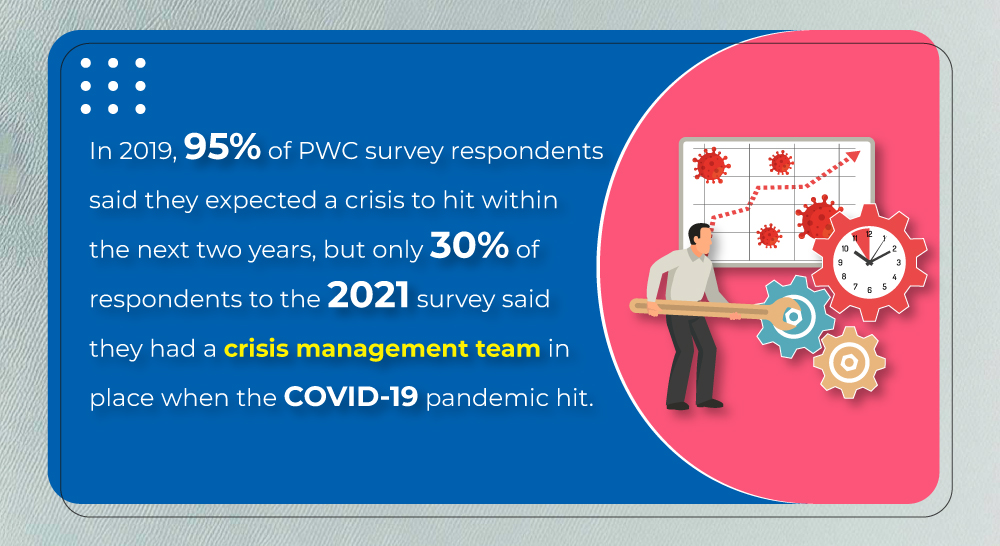

Fortifying Your Organization: Essential Strategies for Crisis Resilience
Crises are unpredictable, but your organization’s response doesn’t have to be. Here are key strategies for building resilience:
1. Develop a Crisis Management Plan
A robust crisis management plan serves as a roadmap for navigating turbulent waters. It outlines clear communication protocols, decision-making processes, and crisis response procedures. Consider creating designated crisis response teams. Additionally, establishing channels for swift communication, both internally and externally, is crucial. This will ensure that important information is shared effectively and promptly.
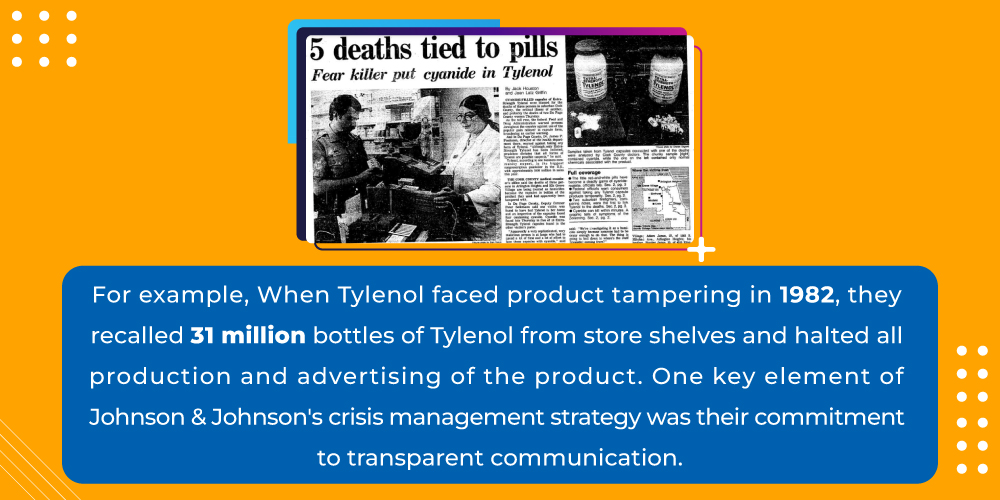

2. Invest in Risk Management
Proactive risk management is essential for identifying and mitigating potential threats before they escalate into crises. Conduct thorough risk assessments to pinpoint vulnerabilities and develop contingency plans to address them. This could involve scenario planning, conducting regular security audits, and staying informed about emerging risks in your industry.
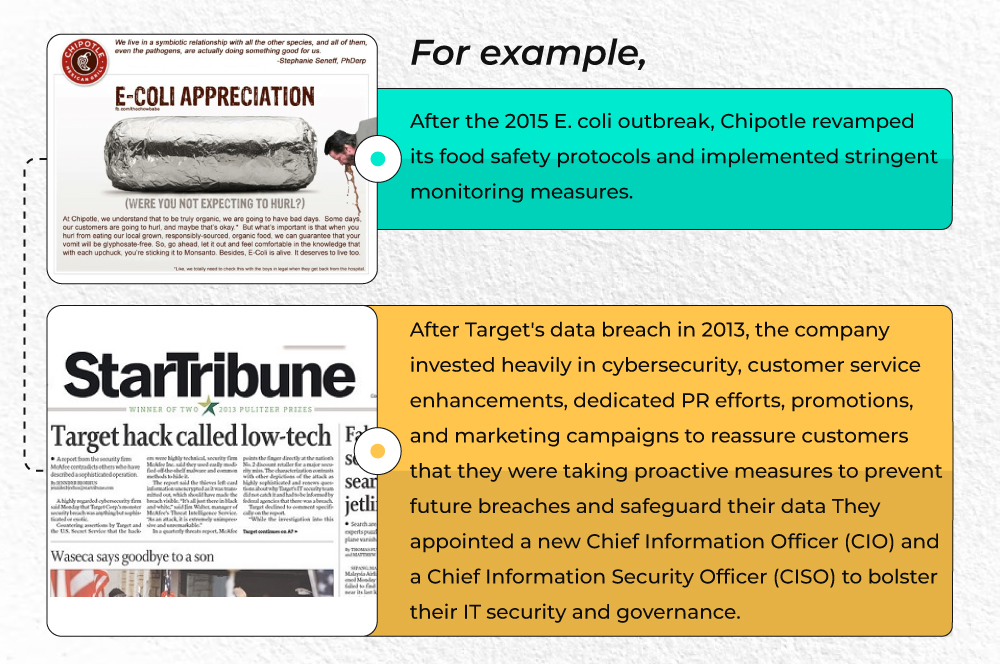

3. Prioritize Ethical Conduct
Upholding strong ethical values is not only the right thing to do but also a cornerstone of crisis resilience. Creating an environment of openness, honesty, and responsibility establishes confidence with stakeholders and boosts your company’s image.. Ensure that ethical considerations are integrated into decision-making processes at all levels of the organization.
4. Embrace Continuous Improvement
The only constant in today’s world is change, and organizations must adapt accordingly. Regularly review and update your crisis management plan based on new learnings, emerging threats, and industry best practices. Conduct post-crisis debriefs to identify areas for improvement and implement corrective actions. Foster a culture of continuous learning and innovation within your organization to stay ahead of potential crises.
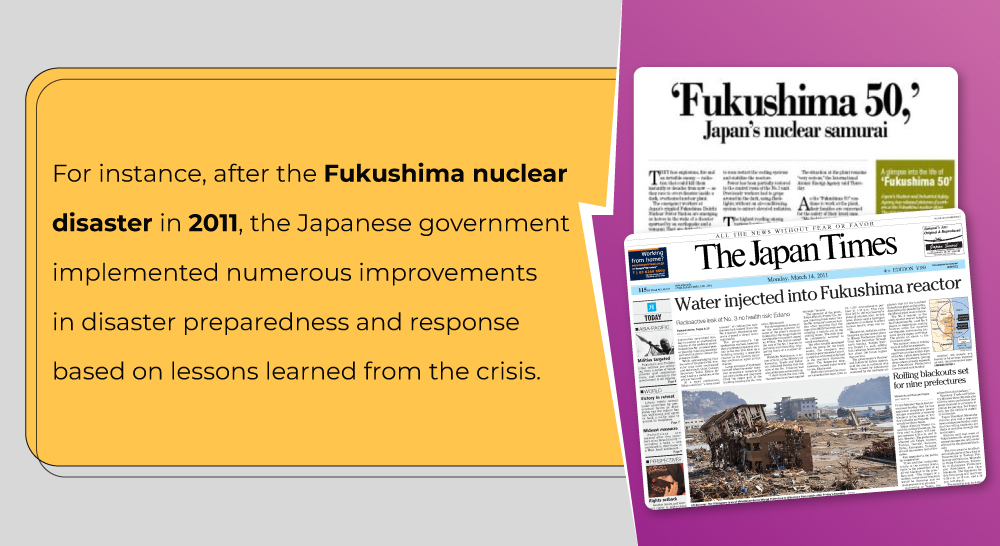

Reclaiming the Trust: Repairing Your Reputation
Regaining trust after a crisis takes time and dedication. Here are some strategies to get you started:
1. Acknowledge and Apologize
Taking full responsibility for your actions is the first step towards rebuilding trust. Offer a sincere apology to those affected by the crisis, acknowledging any harm caused. A genuine expression of remorse demonstrates accountability and lays the groundwork for rebuilding trust.
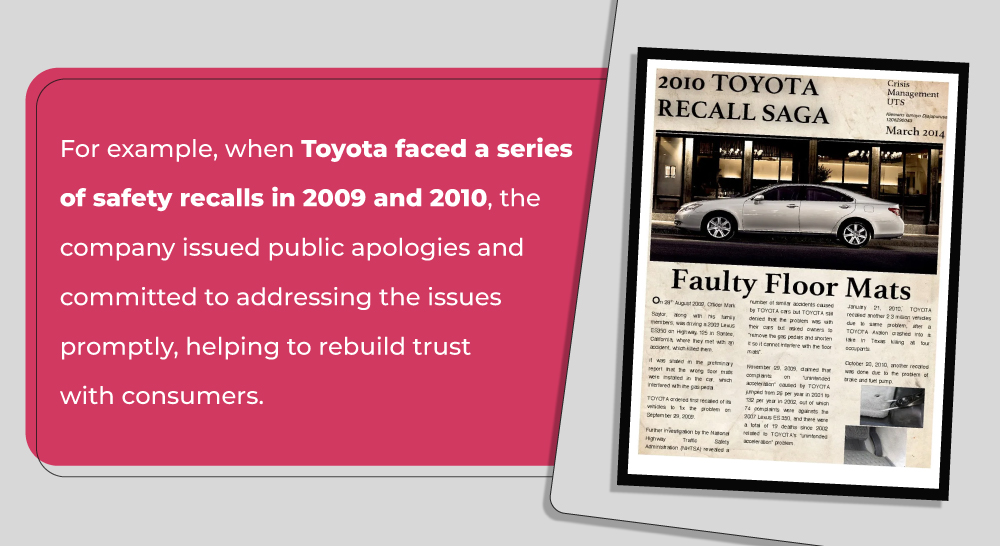

2. Communicate Openly and Honestly
Transparency is crucial in rebuilding trust. Provide regular updates on the situation, including the steps you’re taking to address it and the measures you’re implementing to prevent similar occurrences in the future. Open and honest communication fosters transparency and demonstrates a commitment to accountability.
3. Demonstrate Commitment to Change
Actions speak louder than words when it comes to rebuilding trust. Showcase concrete actions you’re taking to address the root causes of the crisis and prevent similar situations from happening again. Implementing reforms and investing in corrective measures demonstrate a genuine commitment to change and rebuilding trust.
4. Focus on Customer Service
Prioritize customer satisfaction as a central focus of your efforts to rebuild trust. Go above and beyond to address the needs and concerns of your customers, offering genuine solutions and demonstrating your commitment to their satisfaction. Exceptional customer service can help rebuild trust and loyalty, even in the wake of a crisis.
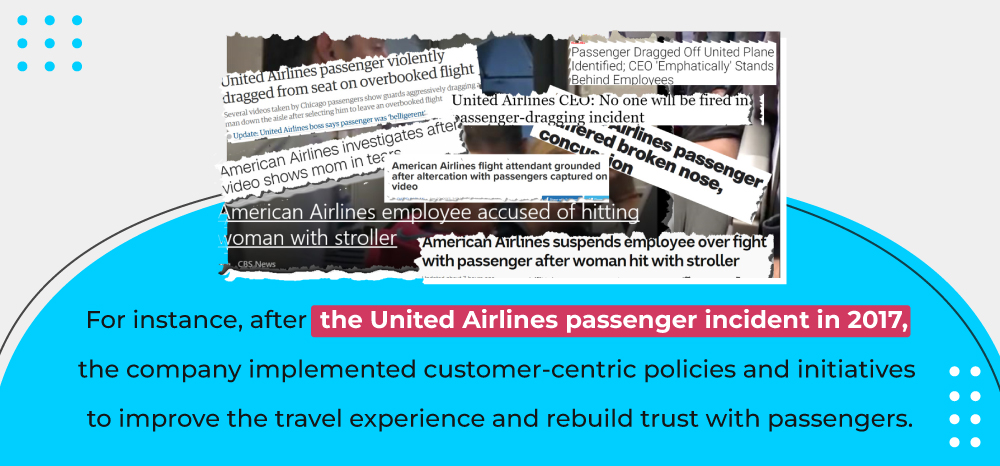

Bounce Back Stronger: Your Organization’s Guide to Crisis Recovery
Let’s face it, crises happen. But what if you could use them as springboards to propel your organization forward? This blog unpacked how to navigate challenges, learn from setbacks, and rebuild trust with your stakeholders. Here are some key takeaways to remember:
- Gather Wisdom from the Ashes: Conduct a thorough post-crisis analysis to identify root causes and prevent similar situations in the future. Every crisis is a learning experience!
- Build a Fortress of Resilience: Develop a crisis management plan, invest in risk management, and prioritize ethical conduct. By being proactive, you can weather any storm.
- Rebuild Trust with Transparency: Take responsibility, communicate openly, and demonstrate your commitment to change. Genuine actions speak volumes.
Remember, crises are a chance to learn, grow, and become a better organization. By following these steps, you can emerge stronger, more trusted, and ready to take on the future. So go forth and build an organization that can weather any storm!







